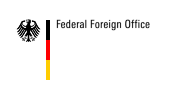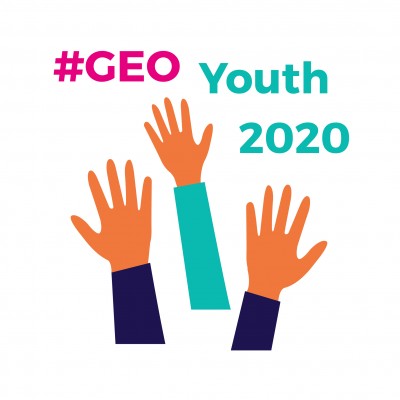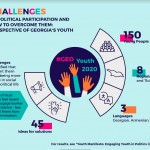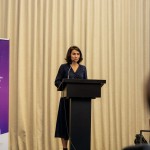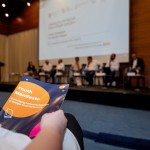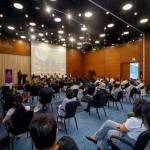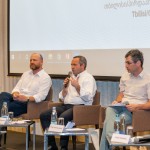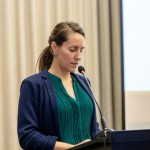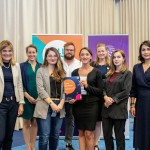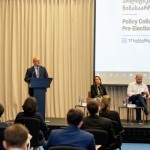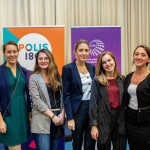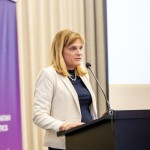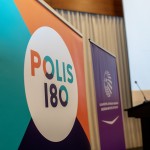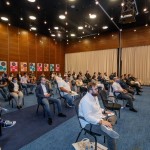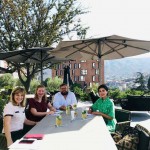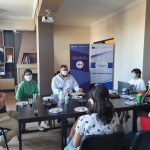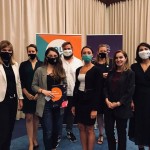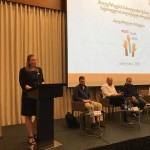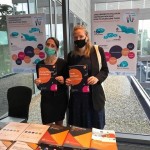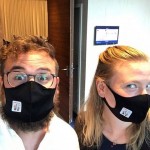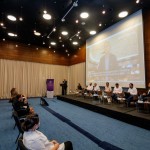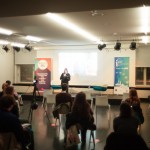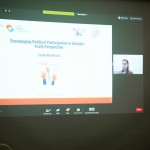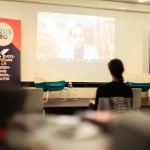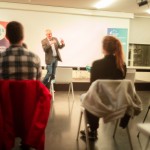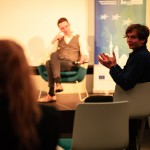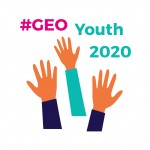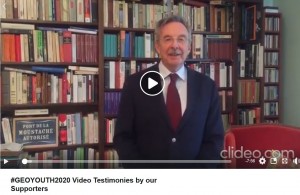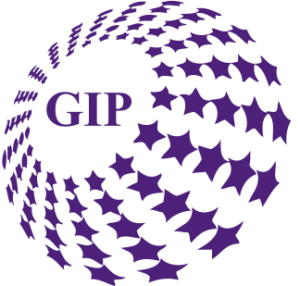Logo Design © Leah Doellmann / photo credits Zaza Nikolozishvili & Frieder Unselt
Manifesto Engaging Youth in Politics in Georgia
#GEOYouth2020
Polis180 together with our long-standing partner, the Georgian Institute of Politics (GIP, Tbilisi) are once again implementing a joint project to promote youth involvement in politics. Over the course of the last years, youth have increasingly caught the eye of policy makers – for instance, in UN Security Council Resolutions 2250 and 2419, in the SDGs, and in the Eastern Partnership’s 20 Deliverables for 2020. Despite these positive developments, young voices have remained marginalized in political processes. In Georgia, youth make up only 12% of the population and therefore have little leverage at the election booth. At the same time, young Georgians do have their own priorities: They are more tolerant towards immigration; they want fewer children than previous generations, while being less open towards abortion and more tolerant of divorce (Caucasus Barometer).
Given a youth unemployment rate of 30%, young Georgians are also more interested in permanent migration than older people. The Georgian Government acknowledges the special roles and needs of youth in its Youth Policy Document (2014), which seeks to support youth involvement in social, economic, cultural and political life, high quality education, employment and training opportunities, healthy lifestyles for youth, and the promotion of civil rights and duties. Nevertheless, young Georgians continue to lack opportunities for political participation. Although they are more inclined to signing offline and online petitions, they are also twice more likely not to vote in elections than the older generation. Moreover, they discuss politics and current events with others much less than older people. Georgian youth are also not very active in political parties, which remain rather unstable organizations. While young Tbilisians have increasingly taken to the streets to voice their political opinions, young people living in rural areas remain mostly unheard in Georgian politics.
Polis180 and the Georgian Institute of Politics believe that ideas and visions of youth from all across the country need to be heard in order to move the Georgian transition forward. In #GEOYOUTH2020, we seek to empower Georgia’s youth to voice their positions in the 2020 parliamentary elections campaign – across party lines. In a participatory process, we will produce a Youth Manifesto to be handed over to competing political parties, asking them to include youth perspectives in their programs and campaigning. In this way, the project brings together “traditional” youth work with the grassroots think tank approach of Polis180.
Project activities
- A train-the-trainers seminar: German young experts for youth participation together with their Georgian counterparts worked on the concept and methods for the Youth Summits in Georgia.
- After the pilot summit in Tbilisi, online youth summits were held divided by regions (Akhaltsikhe, Marneuli, Rustavi, Telavi, Batumi, Zugdidi, Gori, Kutaisi and finally again in Tbilisi, where the greatest influx is to be expected and where, not least, more than a third of the total population lives). During the events, held in Georgian, participants prioritized actions for the next Georgian government based on their everyday challenges. In order to reach the youth in the Georgian regions, we worked with multipliers and local partners.
- The identified youth policy priorities were then uploaded to an online to discuss the results of the summits and to determine the demands for the manifesto.
- The finalized youth manifesto with the most important topics was handed over and discussed with politicians and decision-makers in Tbilisi during a public event prior to the elections.
- In addition, three joint blog articles on young political participation and inclusion in Germany and Georgia were published on our platforms.
- Finally, an event on youth policy participation in Germany and the region of the Eastern Partnership was held in Berlin, at which joint challenges and future paths were discussed based on the manifesto.
Publications
- MANIFESTO – Engaging Youth in Politics in Georgia
- Blog Article #1: “The moment we decide to fulfil something, we can do anything”. An Analysis by Sonja Schiffers & Frauke Seebass
- Blog Article #2: Political apathy in Georgia: Why don’t young people vote? A comment by Nino Samkharadze
- Blog Article #3: Participation for future: Youth in party politics in Germany, Georgia and beyond. A comment by Frauke Seebass & Anna Kiknadze
- 27 OCT | Euronews Georgia Interview: „Low youth activity and participation in elections“
- 30 OCT | TV Pirveli Interview: “Youth passivity towards elections”
- 10 NOV | Radio ATINATI Interview: “Increasing the involvement of young people living along the occupation line in democratic processes” – Subgrant project of #GEOYOUTH2020 participants
Reports
- 29 May | Event Report Kickoff-Meeting #GEOYOUTH2020 and Meet the Trainers
- 5 June | Report: Eric Klausch on How to build a personal connection, even digitally!
- 10 June | Report: Esther Kern on How to structure events for meaningful youth participation!
- 11 June | Report: Cristina Bacalso on How to make participatory events meaningful and inclusive!
- 2 July | Report: The Youth Manifesto in progress: GIP team launched the Youth Summits for the GEOYOUTH2020 participants
- 3 Sep | Event Report: Electing the Future: Participation of Civil Society and Youth in Georgian Party Politics
- 17 Sep | Event Report: Manifesto Presentation in Tbilisi & Pre-Election Debate with Political Parties
- 21 Oct | Event Report: Presentation and Discussion on Youth Participation in Politics in Berlin & Online
Events
- 3 SEP | Panel discussion on civil society and youth participation in Georgian politics
- 21 OCT | Presentation & Discussion: #GEOYOUTH2020 – Manifesto Engaging Youth in Politics in Georgia
Sub-grant Projects
As part of #GEOYOUTH2020, four sub-grant projects were launched and implemented by youth across Georgia:
-
Digital School for Supporting Youth Employment. Region: Khoni, Imereti. Implemented by: Mariam Managadze, Nana Tchrelashvili, Giorgi Ugulava.
- Youth for the Development of Democracy. Region: Zugdidi, Samegrelo-Zemo Svaneti. Implemented by: Tsitsino Shengelia, Keti Nakani, Jilda Khubulia, Natia Sakhokia.
- Meet the Neighbors. Region: Rustavi, Kvemo Kartli. Implemented by: Gvantsa Shishinashvili, Tamta Chkhaidze
- Encouraging Participation of the Youth Residing by the Occupation Line in the Democratic Processes. Region: Zugdidi/Tsalenjikha, Samegrelo-Zemo Svaneti. Implemented by: Ana Tsanava, Levan Papava, Sopio Tchitanava, Tekle Jgarkava, Irakli Beraia.
Our project partner
The Georgian Institute of Politics (GIP) is a Tbilisi-based non-profit, non-partisan, research and analysis organization founded in early 2011. GIP strives to strengthen the organizational backbone of democratic institutions and promote good governance and development through policy research and advocacy in Georgia. It also encourages public participation in civil society-building and developing democratic processes. GIP is working to distinguish itself through relevant, incisive research; extensive public outreach; and a brazen spirit of innovation in policy discourse and political conversation.
Our project staff
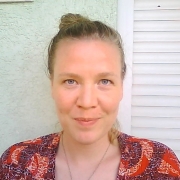
Frauke Seebass (Co-Project Lead, Polis180): Frauke is a board member of Polis180 and active in the program Perspective East, working mainly on the Western Balkans and the countries of the Eastern Partnership in the framework of EU Neighbourhood and Enlargement Policy. In addition, she works for the Berlin-based media NGO n-ost in a project promoting cross-border journalism across the continent. Among others, she studied Peace & Conflict Studies and Linguistics in Germany, The Netherlands, and Israel. Frauke loves Georgian nature, wine and toasting culture and dreams of becoming a brilliant tamada one day.

Anna Kiknadze (Co-Project Lead, Polis180): Anna is an active member of the programs Cultural Politics and the Perspective East, focusing on the Eastern Partnership, the South Caucasus, and German-Georgian Relations. She has a background in International Relations (BA from Free University of Tbilisi, Georgia) and European Studies (MA from University of Bath, UK and Humboldt University of Berlin, Germany). She has been based in Berlin for the past 5 years, but at the same time remains actively engaged with social and political life of Georgia. In addition, she is the founder of an annual international ‘Ojos Negros Tango festival’ in Kazbegi, Georgia.

Renata Skardžiūtė-Kereselidze (Project Manager, GIP): Renata is Programs Manager at Georgian Institute of Politics. She has a background in political science (BA from Vilnius University, Institute of International Relations and Political Science) and nationalism studies (MA from Central European University), with a special interest in Europeanisation. Renata has moved to Georgia from Lithuania eight years ago, to explore the Caucasus version of Euro-Atlantic integration. Before joining GIP Renata worked with different NGOs in Lithuania and Georgia in the fields of human rights, youth activism and development cooperation.
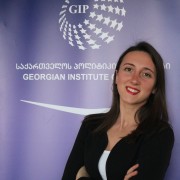
Nino Jibuti (project assistant, GIP): Nino is a USAID Program Officer at Georgian Institute of Politics (GIP) and is coordinating Promoting Youth Transformational Leaders program. Nino has obtained a European graduate degree from Erasmus Mundus Joint Master’s program Social Work with Families and Children (Mfamily), studied in Portugal, Norway, and Sweden. Nino spent one academic year during her undergraduate studies at Charles University in Prague, Czechia. She has worked for different international organizations in Georgia and has a vast experience in implementing different social projects. Her initiatives focused on empowerment, providing equal opportunity to youth living in the regions in Georgia.

Salome Kandelaki (project assistant, GIP): Salome is currently a Project Coordinator at the Georgian Institute of Politics. In 2017, she obtained her MA degree in Political Science from the Central European University Budapest. Moreover, she has the second Master’s degree in Public Administration (MPA) from the joint program of German University of Administrative Sciences and Ivane Javakhishvili Tbilisi State University. Her latest work experience includes Fundraising Management at Human Rights Education and Monitoring Center (EMC) and being a leading acting specialist at the Tbilisi City Assembly as well as project management in different youth non-governmental organizations. Her field of experience is comparative case-study analyses with the particular focus on religion and democracy, regionalism and democratization. Among her research interests are Europeanization, frozen conflicts as well as secularism in Europe.
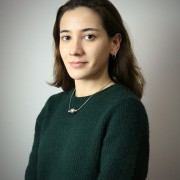
Ketevan Jachvadze (project assistant, GIP): Ketevan is a Communications Officer at GIP. She maintains a favorable public image for the organization and communicates GIP products to the media and public. Primarily she is responsible for providing communication support to the projects implemented by the organization, establishing and maintaining the information flow between the organization and all target groups effectively. In addition, she is responsible for managing publicity, media and events as well as creating and delivering the relevant content.

Nino Samkharadze (project assistant, GIP): Nino is a Junior Policy Analyst at GIP. At the same time, she is a PhD student at Tbilisi State University, Department of Political Science. She has obtained MA degree in Nationalism and Ethnicity Studies from TSU and BA degree in International Relations from International Black Sea University (IBSU). Being an invited lecturer at IBSU she delivers courses in Introduction to Political Science and Nationalism in International Relations. Nino’s research interests include nationalism, identity politics and their influence on political processes in the post-Soviet region.
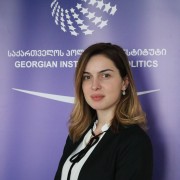
Gvantsa Ichkiti (project assistant, GIP): Gvantsa is a Project Coordinator at the Georgian Institute of Politics (GIP). She is currently studying on joint master program in Public Administration of German University of Administrative Sciences Speyer and Tbilisi State University. Gvantsa holds bachelor degree in Political Science from Tbilisi State University and spent academic semester in Charles University (Prague, Czech Republic). She has been working in non-governmental organizations in Georgia as well as in Europe. Her recent working experience includes the Senior Specialist in International Relations Department, Ministry of Environmental Protection and Agriculture of Georgia. Gvantsa is interested in political systems, ideologies as well as environmental policy and sustainable development.
Project term
01 March- 31 December 2020
Our supporters
The project is funded by the German Federal Foreign Office in the framework of the programme “Expanding Cooperation with Civil Society in the Eastern Partnership Countries and Russia”.

